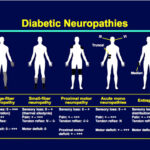There are those without diabetes , those with diabetes and those with pre diabetes, who are neither normal nor diabetic. Those belonging to this group can be prevented from progressing to frank diabetes by following advice from their health care providers.
Who is at risk for developing Pre Diabetes?
• All adults with a BMI ≥ 25 kg/m² who are physically inactive and / or have first degree relatives with diabetes.
• Those who have high blood pressure .
• Those who have an A1c >5.7% .
• Those women delivered baby >9lb
• Those who have acanthosis nigricans( thickened velvety skin at the nape of the neck. This indicates there could be diabetes)
How to diagnose ?
American Diabetes association(ADA) stated that Impaired fasting glucose(IFG) patients have fasting plasma glucose levels between100 mg/dL and 125 mg/dL.For those with impaired glucose tolerance(IGT), 2 hour post glucose levels between 140 mg/dL and 199 mg/dL are significant.
Both IFG and IGT both are at high risk of developing diabetes Mellitus type 2 and atherosclerotic disease cardiovascular disease, retinopathy ( affecting the eyes) and nephropathy ( affecting the kidneys). Most of the time people are reluctant to check for sugar and unfortunately find themselves being diagnosed with diabetes when they present with the dreadful complications such as a stroke, or a heart attack, or blindness or a kidney failure.
It has been shown in various studies that the pre diabetes stage lasts for approximately 7-12 years before onset of clinical diabetes ( when the patient is diagnosed with diabetes)
The silver lining:
If diagnosed with pre diabetes, steps can be taken to prevent the progression to frank diabetes by lifestyle changes such as diet, exercise and increased physical activity and for those with high risk ( as among those with the above mentioned risk factors) medicines such as metformin or pioglitazone or acrabose are used.
Why is pre diabetes important?
The risk of developing an eye problem or heart problem is as high as person with diabetes getting a second heart attack or eye problem. There are more pre diabetes cases than diagnosed diabetes cases around the world.
Diabetes Risk assessment score:
1. Age
18 – 44 years score 0
45 -64 years score 5
65 years or older score 9
2. Body mass index (BMI)
If BMI is > 25 score 5
If BMI < 25 score 0
3. If a woman who has had a baby weighing more than nine pounds (4 kg) at birth
Yes score 1
No score 0
4. Sibling with diabetes
Yes Score 1
No score 0
5. Parent with diabetes
Yes score 1
No score 0
6. under 65 years of age and do not practice regular exercise at all, or I do it less than three times per week
Yes score 1
No score 0
Total scores and interpretation
If score is 10 or more the risk of developing diabetes is high
If score is between 3 and 9, the risk is intermediate
If score is less than 2, the risk is low















